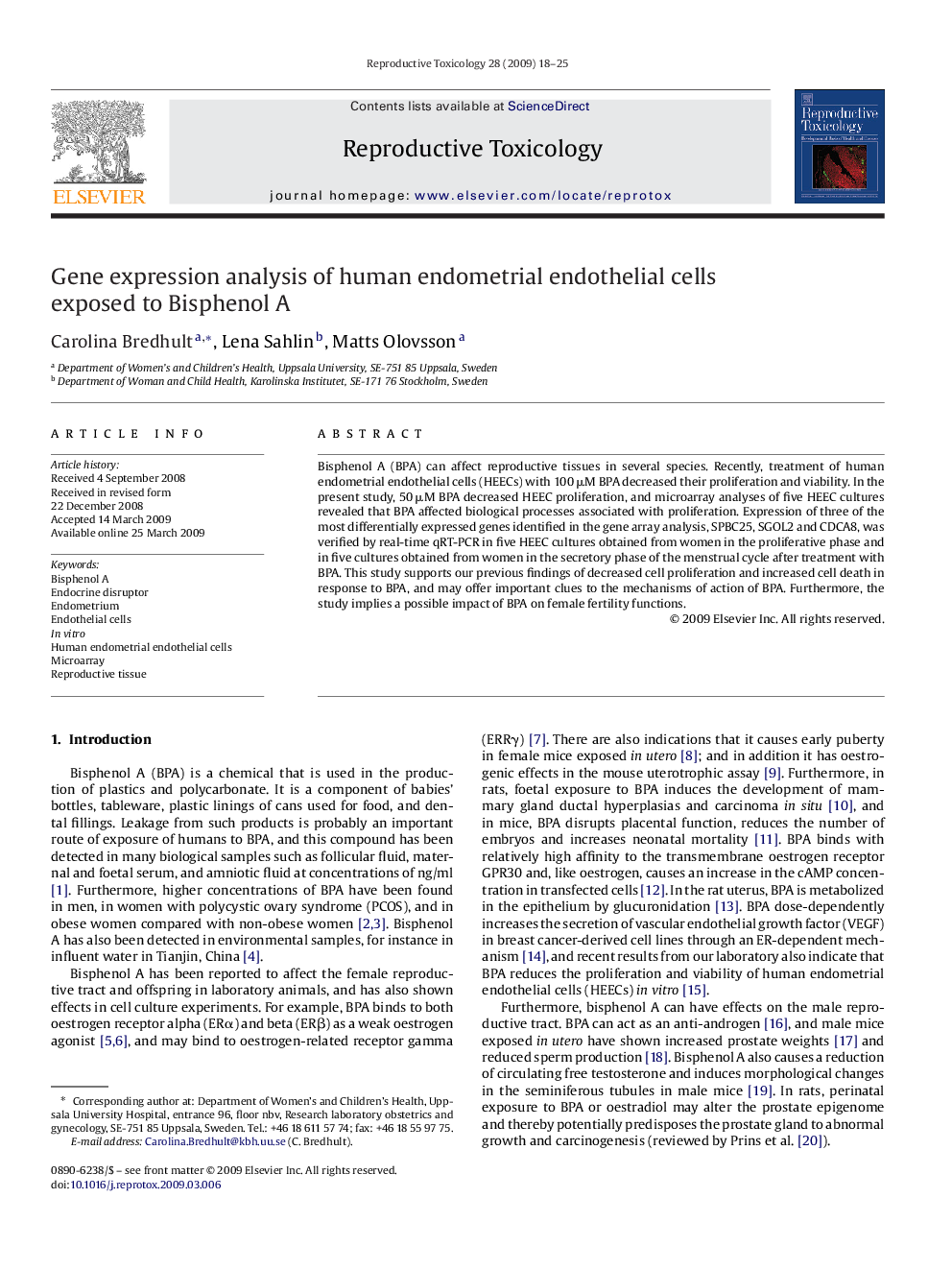| Article ID | Journal | Published Year | Pages | File Type |
|---|---|---|---|---|
| 2594550 | Reproductive Toxicology | 2009 | 8 Pages |
Bisphenol A (BPA) can affect reproductive tissues in several species. Recently, treatment of human endometrial endothelial cells (HEECs) with 100 μM BPA decreased their proliferation and viability. In the present study, 50 μM BPA decreased HEEC proliferation, and microarray analyses of five HEEC cultures revealed that BPA affected biological processes associated with proliferation. Expression of three of the most differentially expressed genes identified in the gene array analysis, SPBC25, SGOL2 and CDCA8, was verified by real-time qRT-PCR in five HEEC cultures obtained from women in the proliferative phase and in five cultures obtained from women in the secretory phase of the menstrual cycle after treatment with BPA. This study supports our previous findings of decreased cell proliferation and increased cell death in response to BPA, and may offer important clues to the mechanisms of action of BPA. Furthermore, the study implies a possible impact of BPA on female fertility functions.
